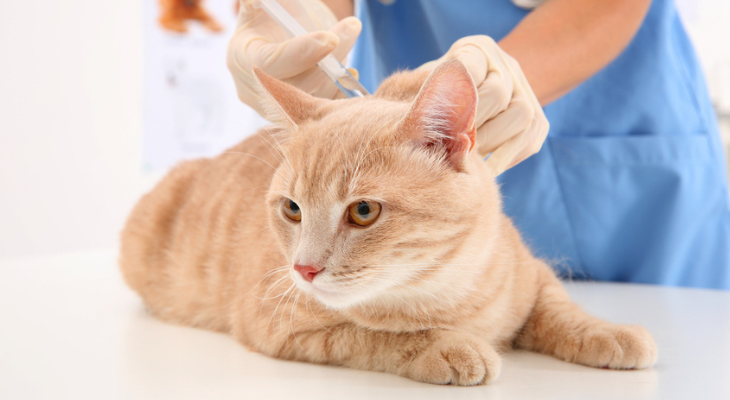
Don't Forget to Vaccinate Your Pets This Year
Vaccines reduce the risk of serious illness or death and are essential for your furry friend's good health. Unfortunately, it's easy to forget about vaccinations when your life is hectic. If it's been a while since your pet received its vaccinations, paying a visit to the veterinarian will help you ensure that your dog, cat, or ferret is protected.
How Vaccines Work
Vaccines make it easier for your pet's immune system to recognize and kill germs that cause serious illness and disease. After your pet receives a vaccine, his immune system produces antibodies, proteins that fight the particular bacteria or virus. These proteins destroy germs before they can make your pet sick.
Vaccines ensure that:
- Pets Don't Develop Devastating Illnesses. The vaccines your pet receives offer protection against serious or deadly diseases, like rabies or distemper. Even if an unvaccinated pet survives a disease, it may face lifelong health complications. By preventing illness, vaccinations help your pet enjoy a long, healthy life.
- Your Pet Is Welcome Everywhere. Boarding and grooming facilities may require proof of vaccinations before you can use their services. Your state or municipality might also require pets to be vaccinated against rabies.
- Diseases Don't Spread. Since disease symptoms usually don't appear immediately after exposure, your pet could easily spread the illness to other animals and people long before you're aware that your furry friend is sick. By preventing illness, vaccines also reduce the likelihood of disease outbreaks in your area.
- Young and Old Animals Receive the Protection They Need. Although vaccinations are important for all animals, young and old animals are at increased risk of illness due to their immature or weak immune systems. Vaccinations help them fight illnesses that could kill them.
- You Won't Break Your Budget. Thanks to medical advances, it's now possible to treat illnesses and conditions that would have killed your pet years ago. Although the treatments will help improve quality of life, they can be expensive if your pet develops a chronic condition after suffering an illness. Vaccinations not only protect your pet's health, but also help you avoid costly veterinary bills.
Why It's Important to Follow the Recommended Vaccination Schedule
Most vaccines don't offer lifelong protection. In fact, they may begin to wear off just a year or more after your pet receives them. Luckily, vaccine boosters offer a simple way to provide continuous protection for your pet.
The recommended schedule for vaccines varies depending on the type of vaccine and the laws in your state. Dogs and cats receive the rabies vaccine every one to three years. The vaccine protects your pet from rabies, a disease that's almost always fatal. Rabies is spread to animals and people after contact with an infected animal's saliva, or eyes, nose or mouth.
Although you may associate rabies with dogs, cats are actually diagnosed with the disease more often according to the American Medical Veterinary Association (AVMA). The AVMA believes that may be due to lower vaccination rates for cats, in addition to exposure to rabid animals when cats wander outdoors.
Vaccines for feline and canine distemper, diseases that can cause death, brain damage, and other health complications, are recommended every three years. Ferrets also need distemper and rabies vaccines on a regular basis.
Puppies and kittens receive a series of vaccines several times throughout their first year of life. After the dog or cat turns one, it follows the adult vaccine schedule.
In addition to distemper and rabies vaccines, these core vaccinations are recommended for pets:
- Canine Hepatitis (dogs)
- Parvovirus (dogs)
- Calicivirus (cats)
- Feline Herpesvirus (cats)
Your veterinarian may also recommend certain non-core vaccinations depending on your pet's risk factors and the rate of disease transmission in your area. Non-core vaccinations that might be offered include:
Lyme Disease (dogs)
- Leptospirosis (dogs)
- Parainfluenza (dogs)
- Feline leukemia (cats)
- Bordetella (dogs and cats)
Is your pet due for its vaccinations? Contact our office to make an appointment.
Sources:
AVMA: Rabies and Your Pet
https://www.avma.org/resources-tools/one-health/help-control-rabies/rabies-and-your-pet
ASPCA: Vaccinations for Your Pet
https://www.aspca.org/pet-care/general-pet-care/vaccinations-your-pet
WebMD: Pet Vaccines: Schedules for Cats and Dogs, 11/9/2022
